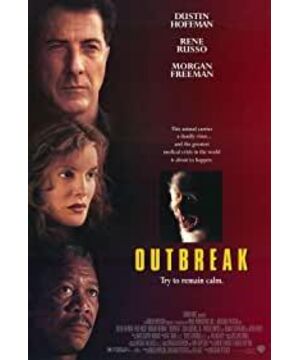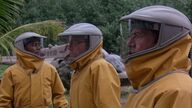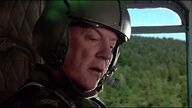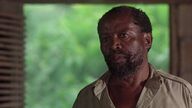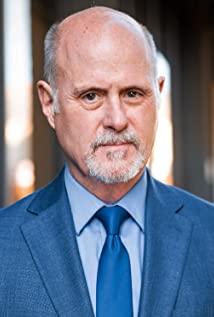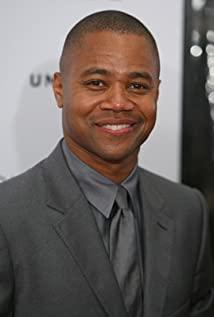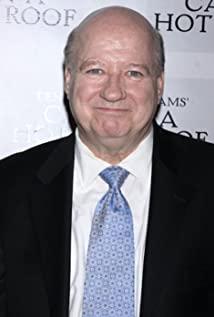View more about Outbreak reviews
natural disaster or man-made disaster
Bret 2022-04-19 09:01:43
-
Chance 2022-04-20 09:01:36
In "Infectious Diseases", you can see the reactions of patients and people, while in "Extreme Panic", you can see the source of disease, transmission, medical treatment and government practices.
-
Humberto 2022-04-20 09:01:36
I believe that Mr. Shinji Mikami must have seen this film, because many elements are reflected in "Resident Evil"~ This film is the only film that the teacher in the university's art appreciation class let go of that can be accepted by most people. .
-
General Donald McClintock: Colonel Briggs.
Colonel Briggs: Yes, sir.
General Donald McClintock: Daniels was here? And here?
Colonel Briggs: Yes, he was down here.
General Donald McClintock: Why was I not informed?
Colonel Briggs: Sir, you were sleeping.
General Donald McClintock: I am never *that* asleep, Briggs. Now you find him and you arrest him.
-
Sam Daniels: Do you know the incubation period?
Dr. Benjamin Iwabi: No. But it kills in two or three days. The mortality rate is 100%.
Sam Daniels: Jesus. Could an infected person have gotten out of the village?
Dr. Benjamin Iwabi: If he did, he'd be dead or dying in the jungle. And it's 50 miles to the nearest village.
Sam Daniels: First case? Patient zero?
Dr. Benjamin Iwabi: A young man called Murazo worked with a white man to build a-a road into Kinshasa. And when he returned, he was sick.
Sam Daniels: I see.
Dr. Benjamin Iwabi: And he drank from this well. From there it spread through the entire village.
[Sam takes a look at the well, and then turns back to Benjamin]
Sam Daniels: Did you identify the carrier? The host?
Dr. Benjamin Iwabi: No. When he arrived the boy was incoherent. He died, uh, two hours later. He couldn't tell us how he got it.
[Sam looks up and notices a healthy villager chanting on the hills]
Sam Daniels: He's not sick.
Dr. Benjamin Iwabi: [looks toward the villager] He's a local juju man. Witch doctor. He stayed in his cave a whole week.
Sam Daniels: I'd like to talk to him.
Dr. Benjamin Iwabi: No, he talks to me. You see, he believes that the gods were awoken from their sleep by the men cutting down the trees where no man should be. And the gods got angry. This is a punishment.


